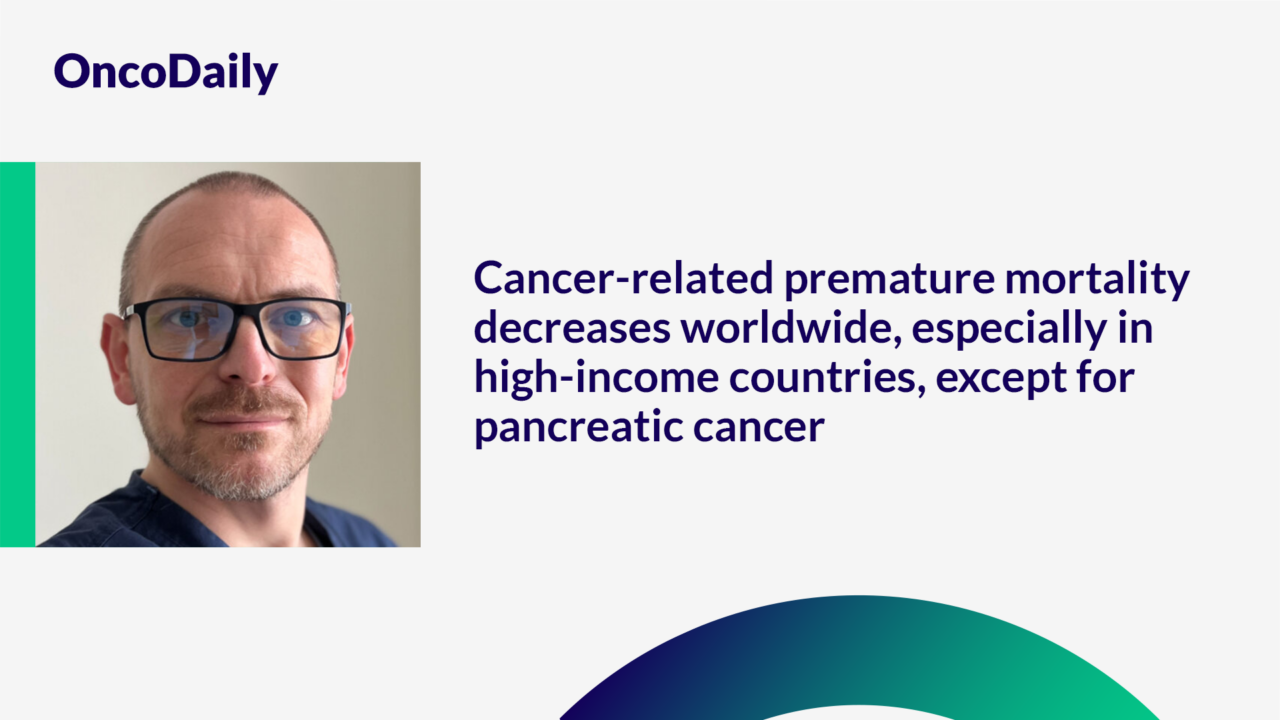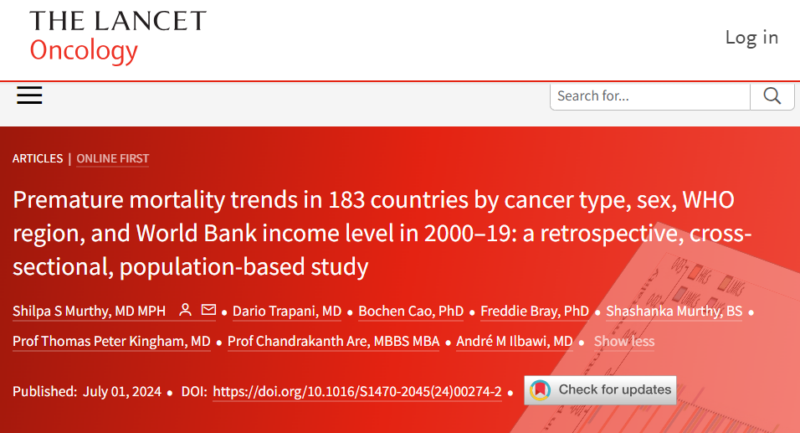
Piotr Wysocki: Cancer-related premature mortality decreases worldwide, especially in high-income countries, except for pancreatic cancer
Piotr Wysocki recently posted on LinkedIn:
“The study by Murthy SS et al. (Lancet Oncology) analyzed premature mortality trends due to cancer from 2000 to 2019 in 183 countries. Data were obtained from WHO Global Health Estimates, focusing on 13 individual cancers, categorized by sex, WHO region, and World Bank income level. The primary objective was to determine the annual rate of change in premature mortality rates and evaluate progress towards Sustainable Development Goal 3.4 (SDG 3.4), which aims to reduce premature mortality from non-communicable diseases, including cancer, by a third by 2030.
Findings:
- Overall Trends: Premature mortality rates decreased in 138 (75%) of 183 countries across all World Bank income levels and WHO regions. However, only eight (4%) countries are likely to meet the SDG 3.4 targets for all cancers combined.
- High-Income Countries: Cancers with early detection strategies, such as breast and colorectal cancer, showed higher declining premature mortality rates (breast cancer: 48 [89%] of 54 countries; colorectal cancer: 45 [83%] of 54 countries).
- Low-Income Countries: The declines were less pronounced (breast cancer: 7 [24%] of 29 countries; colorectal cancer: 4 [14%] of 29 countries).
- Cervical Cancer: Countries with primary prevention programs showed better outcomes (high-income: 50 [93%] of 54; low-income: 26 [90%] of 29).
- Sex-Related Disparities: Premature mortality rates varied significantly by sex across WHO regions, World Bank income groups, and cancer types.
The study clearly shows that high-income countries demonstrate more significant reductions in premature mortality for all cancers combined and for individual cancer types compared to lower-middle-income and low-income countries. However, cancers with early detection strategies (e.g., breast and colorectal cancers) are performing worse in reducing premature mortality compared to cancers with primary prevention measures (e.g., cervical cancer).
The only cancer not showing the decrease in premature mortality irrespective of country income level remains pancreatic cancer, which lacks not only early detection strategies and primary prevention measures but also novel, active treatment strategies.”
Authors: Shilpa S Murthy, Dario Trapani, Bochen Cao, Freddie Bray, Shashanka Murthy, Thomas Peter Kingham, Chandrakanth Are and André M Ilbawi.

Source: Piotr Wysocki/LinkedIn
Piotr Wysocki leads the Clinical Oncology Department at University Hospital and the Faculty of Oncology at Jagiellonian University-Medical College in Krakow, Poland. As an advisor to the Polish Ministry of Health, he shapes the national cancer strategy.
His clinical expertise spans the systemic treatment of breast, gynecologic, and genitourinary cancers, with a focus on developing innovative metronomic chemotherapy-based therapies for advanced cancer patients who have undergone prior treatment.
Read other posts by Piotr Wysocki published on OncoDaily.
